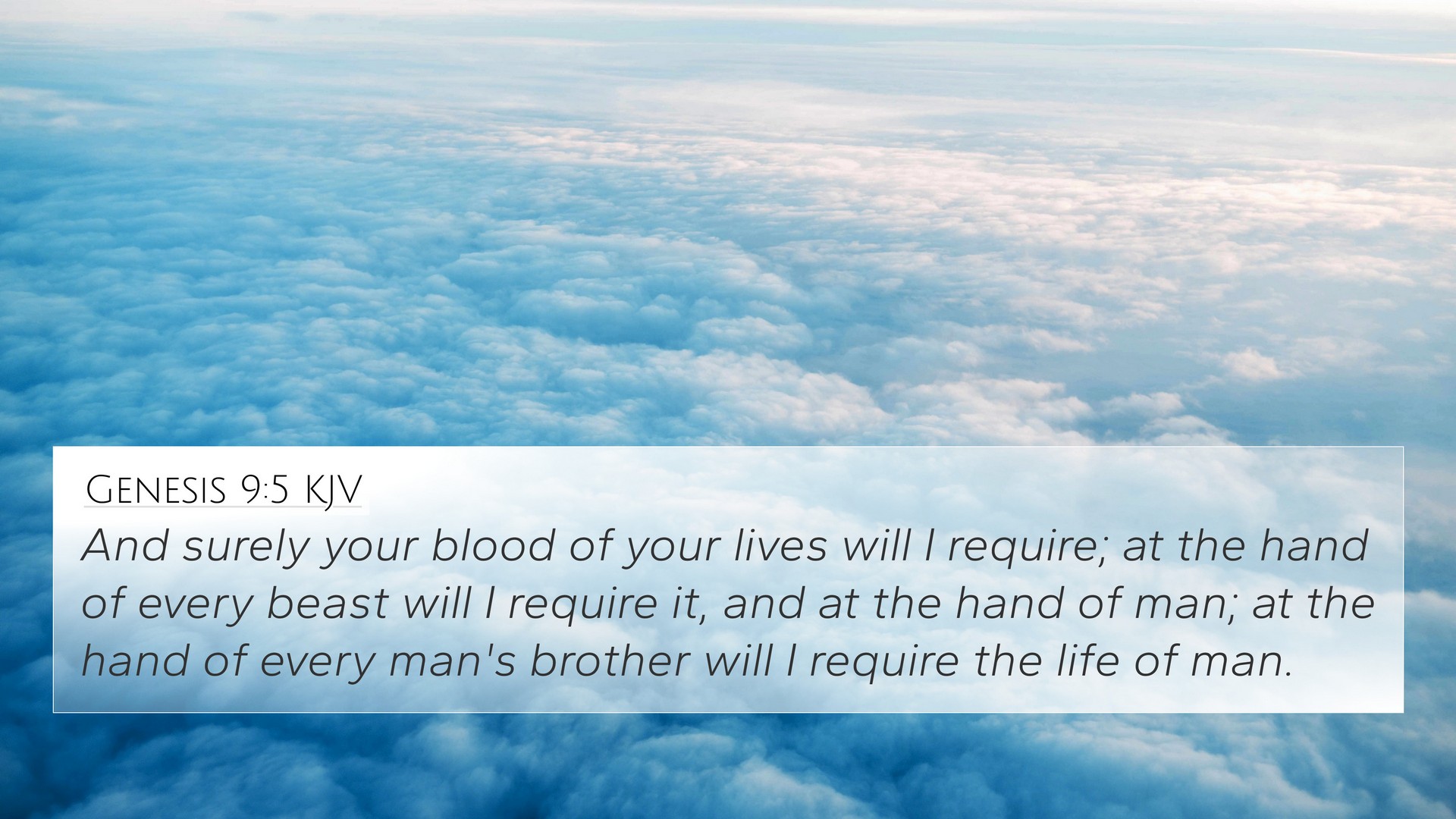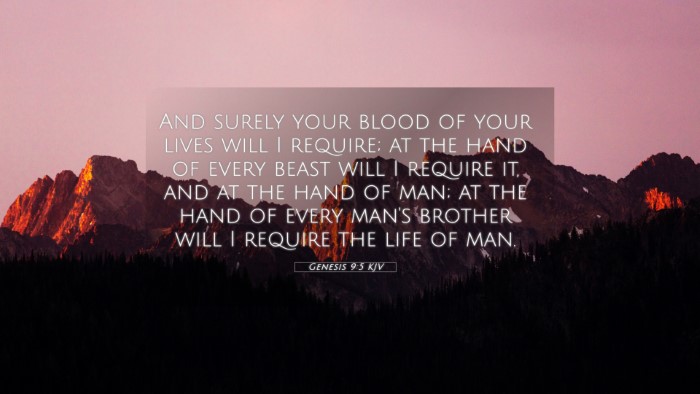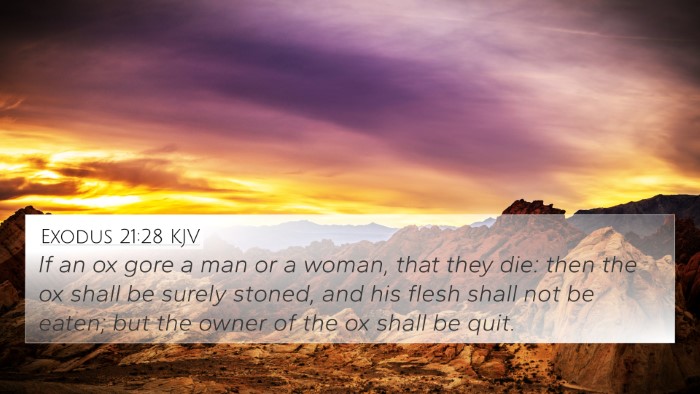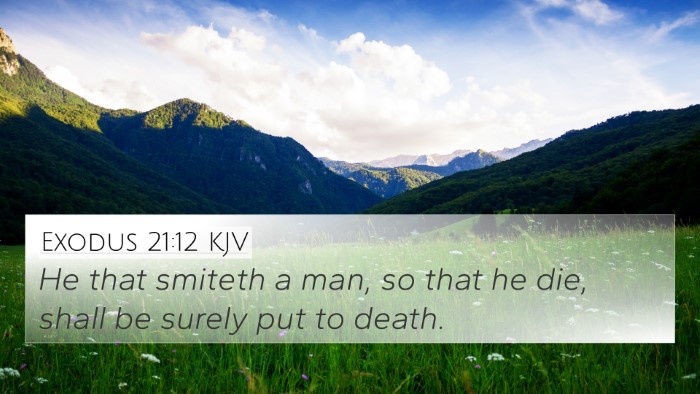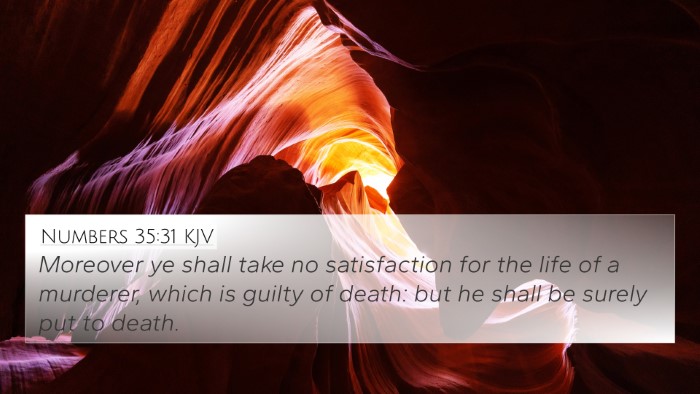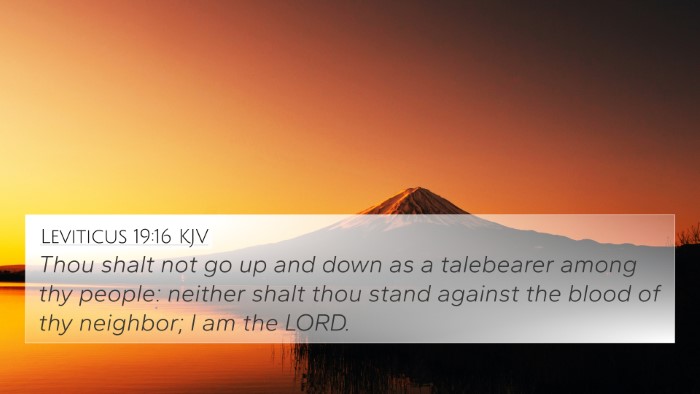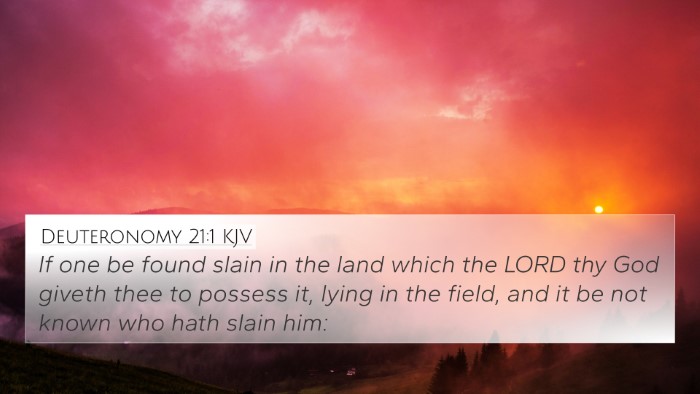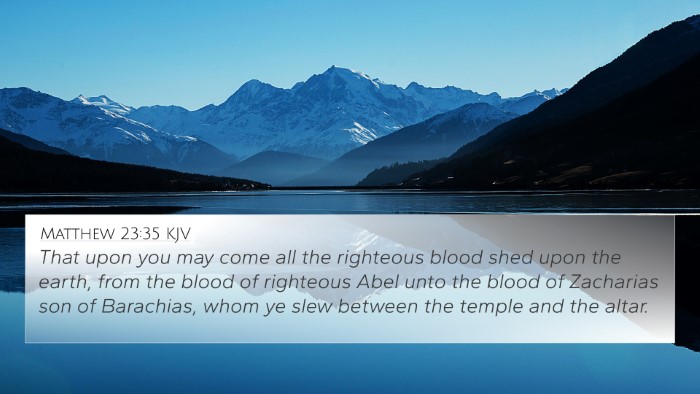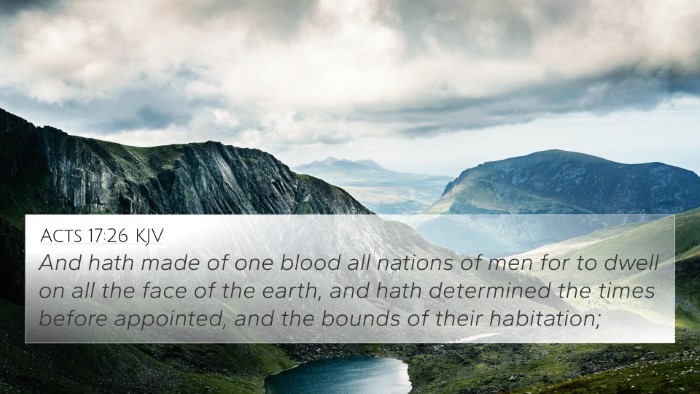Understanding Genesis 9:5
Genesis 9:5 states: "And surely your blood of your lives will I require; at the hand of every beast will I require it, and at the hand of man; at the hand of every man's brother will I require the life of man." This verse holds crucial significance in the context of the sanctity of human life and divine accountability.
Contextual Overview
This verse appears post-Flood, when God sets a covenant with Noah and his descendants, establishing principles that govern the relationship between humanity and the divine as well as between individuals. In this command, God emphasizes the seriousness with which He regards human life.
Significance of Life
- Divine Accountability: The verse indicates that all lives are precious to God, and there will be divine reckoning for taking a life. This reflects God's justice and His ultimate authority over life and death.
- Protection of Human Life: The decree manifests God's intention to protect human life from violence, underscoring the importance of the moral obligation to uphold the sanctity of life.
Insights from Public Domain Commentaries
Matthew Henry: He emphasizes that God’s requirement for blood signifies the value He places on human life, highlighting the severe consequences for those who unlawfully take a life. Henry points out that vengeance is not arbitrary; it is established for justice.
Albert Barnes: Barnes expands on the phrase "require it," indicating that God requires not just retribution but accountability within a societal framework. He connects this with civil governance and the notion of law as a divine ordinance for societal order.
Adam Clarke: Clarke notes the connection between this verse and the moral order that God demands of humanity. The spilling of blood is serious, and the escalation of violence in society directly contradicts God’s intentions for harmony and societal welfare.
Bible Cross-References for Further Insight
- Exodus 21:12-14: This passage establishes laws regarding murder, reinforcing the idea of accountability for taking life.
- Leviticus 24:17: Clarifies the death penalty for anyone who takes another's life, supporting the concept of divine justice.
- Numbers 35:33: Discusses bloodguilt and the need for justice in cases of murder to prevent defilement of the land.
- Romans 13:4: Apostles reflect on governing authorities being ministers of God to execute wrath on those who do evil.
- Matthew 5:21-22: Jesus expands the understanding of murder to include anger and insults, emphasizing the heart’s condition.
- 1 John 3:15: Underlines that whoever hates his brother is a murderer, connecting to the intent behind actions.
- James 4:1-2: Discusses conflicts and fights arising from desires that kill, highlighting the spiritual roots of violence.
Thematic Connections
This verse connects to the themes of justice, morality, and divine mandate across Scripture. The emphasis on life leads to broader discussions about moral law, societal order, and personal conduct within the framework of divine authority. Each cross-reference illustrates links across the text, contributing to an integrated understanding of the moral imperatives laid forth in the Bible.
Conclusion
Genesis 9:5 is a powerful reminder of God's regard for human life and the moral obligations that arise from it. By examining this verse alongside other related Scripture, we gain deeper insight into the consistent theme of the sanctity and value of life as portrayed throughout the Biblical narrative.
